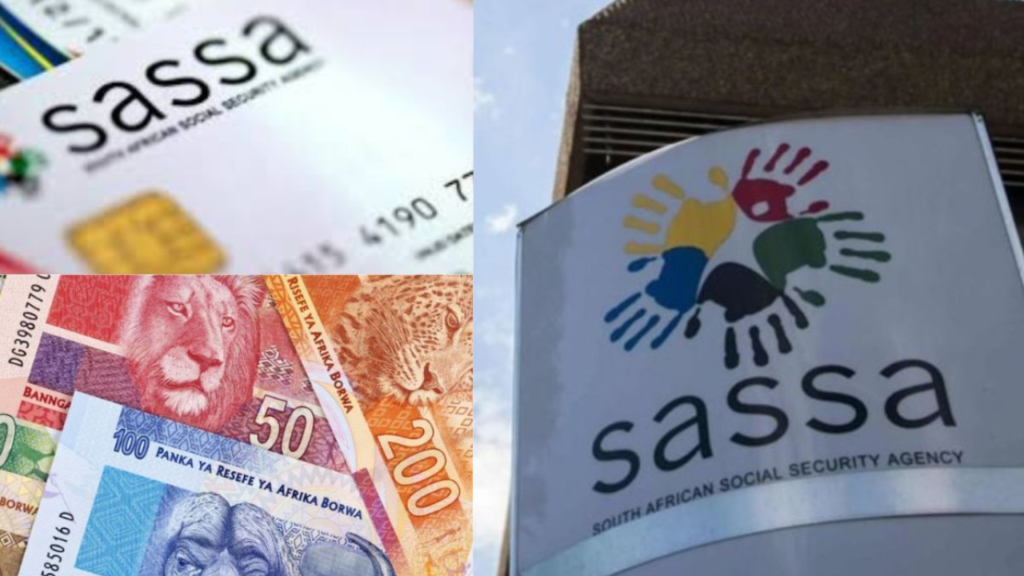In February 2025, the South African Social Security Agency (SASSA) will continue distributing its R1190 monthly Foster Child Grant. This financial assistance aims to support foster parents who are responsible for the care and well-being of children placed under their guardianship. As the SASSA grant is a vital source of financial help for foster families, many people are curious about who qualifies and how to claim the benefit. Here’s everything you need to know about this grant, including eligibility criteria, payment dates, and how to apply.
What is the R1190 Monthly Foster Child Grant?
The R1190 Foster Child Grant is a monthly financial assistance program offered by SASSA to help foster parents or guardians who are caring for children. This grant helps cover the basic needs of the foster child, such as food, clothing, medical care, and education expenses. Foster care is an essential service, and this grant is designed to help ease the financial burden on those who provide care for children who cannot live with their biological parents.
In February 2025, this grant will continue to support foster families, enabling them to better provide for the children in their care.

Who Will Get the Foster Child Grant in February 2025?
To qualify for the R1190 Foster Child Grant, certain criteria must be met by the foster parents or guardians, as well as the children under their care. Below is a breakdown of who is eligible for this grant:
1. Foster Parent Eligibility
- South African Citizens: Only South African citizens, permanent residents, or refugees are eligible to apply for the grant.
- Income Criteria: The foster parent’s income must be below a certain threshold. SASSA will assess the financial situation of the applicant to determine eligibility.
- Foster Care Agreement: The child must be placed in foster care by a court order or through the Department of Social Development. The foster parent must have legal guardianship of the child, verified by a court document.
- Not Receiving Other Grants: Foster parents who are already receiving other government grants (e.g., the Child Support Grant) may not be eligible for this grant if their income exceeds the allowed limits.
2. Foster Child Eligibility
- Age Limit: The child must be under the age of 18 years. The child must not be a biological child of the foster parent.
- Court-Ordered Foster Care: The child must be placed under the care of the foster parent by a court order.
- Disability: If the foster child is disabled, they may be eligible for an additional grant or higher payment, depending on the severity of their disability.
How Much Will Foster Parents Receive?
The R1190 monthly grant will be provided to eligible foster parents or guardians, per child in their care. This amount is intended to assist in meeting the child’s needs. The foster child grant amount may be reviewed and adjusted periodically by the government, depending on inflation and other economic factors.
In addition, foster parents with multiple children may receive additional support for each child, though the total number of children in care will be taken into account during the application process.

How to Apply for the R1190 Foster Child Grant?
If you meet the eligibility criteria for the SASSA Foster Child Grant, follow these steps to apply:
- Visit the Nearest SASSA Office: Applications can be submitted at your local SASSA office. Bring along all necessary documentation, such as proof of income, a copy of the court order for foster care, and the child’s birth certificate.
- Provide Required Documents: You will need to provide:
- Proof of identification (ID book or card).
- Proof of income (if applicable).
- The foster care court order.
- The child’s birth certificate or other identification documents.
- Complete the Application Form: Fill out the SASSA foster child grant application form.
- Wait for Approval: After your application is submitted, it will be processed by SASSA. If successful, you will be informed of your eligibility, and you can begin receiving the grant on the specified payment dates.
Important Dates to Remember
The February 2025 Foster Child Grant will be paid out as part of the monthly social grant distribution. The specific dates for payment will depend on your location and how your application was processed. Generally, SASSA payments are made from the 1st to the 15th of each month, but the exact date may vary.
Be sure to keep an eye on official SASSA communication for specific dates for February 2025.
Conclusion
The R1190 Foster Child Grant in February 2025 offers crucial financial assistance to foster parents, helping them provide for the children under their care. If you are a foster parent in South Africa, make sure to check the eligibility criteria and apply through SASSA to ensure you receive the support you need. The grant is a valuable resource for foster families and aims to ease the financial burden of child-rearing for those in the foster care system.
FAQs
1. How long will I receive the R1190 Foster Child Grant?
As long as the foster child remains under your care and meets the eligibility criteria, you can continue receiving the grant. The grant will be re-assessed annually or if there is a change in the child’s circumstances.
2. Can I receive other grants while receiving the Foster Child Grant?
You may qualify for other SASSA grants such as the Child Support Grant, but you will need to meet the eligibility requirements and follow SASSA’s guidelines for multiple grants.
3. What if I don’t have a court order for foster care?
A court order is required to qualify for the foster child grant. If you do not have one, you will need to apply for legal guardianship of the child through the Department of Social Development.
4. How will I receive the payment?
Payments are typically made via bank transfer or cash payments at designated points. You will be notified of your specific payment method after approval.
5. Can the grant amount change over time?
Yes, the grant amount is subject to periodic adjustments based on economic factors such as inflation. Any changes to the amount will be communicated by SASSA.



